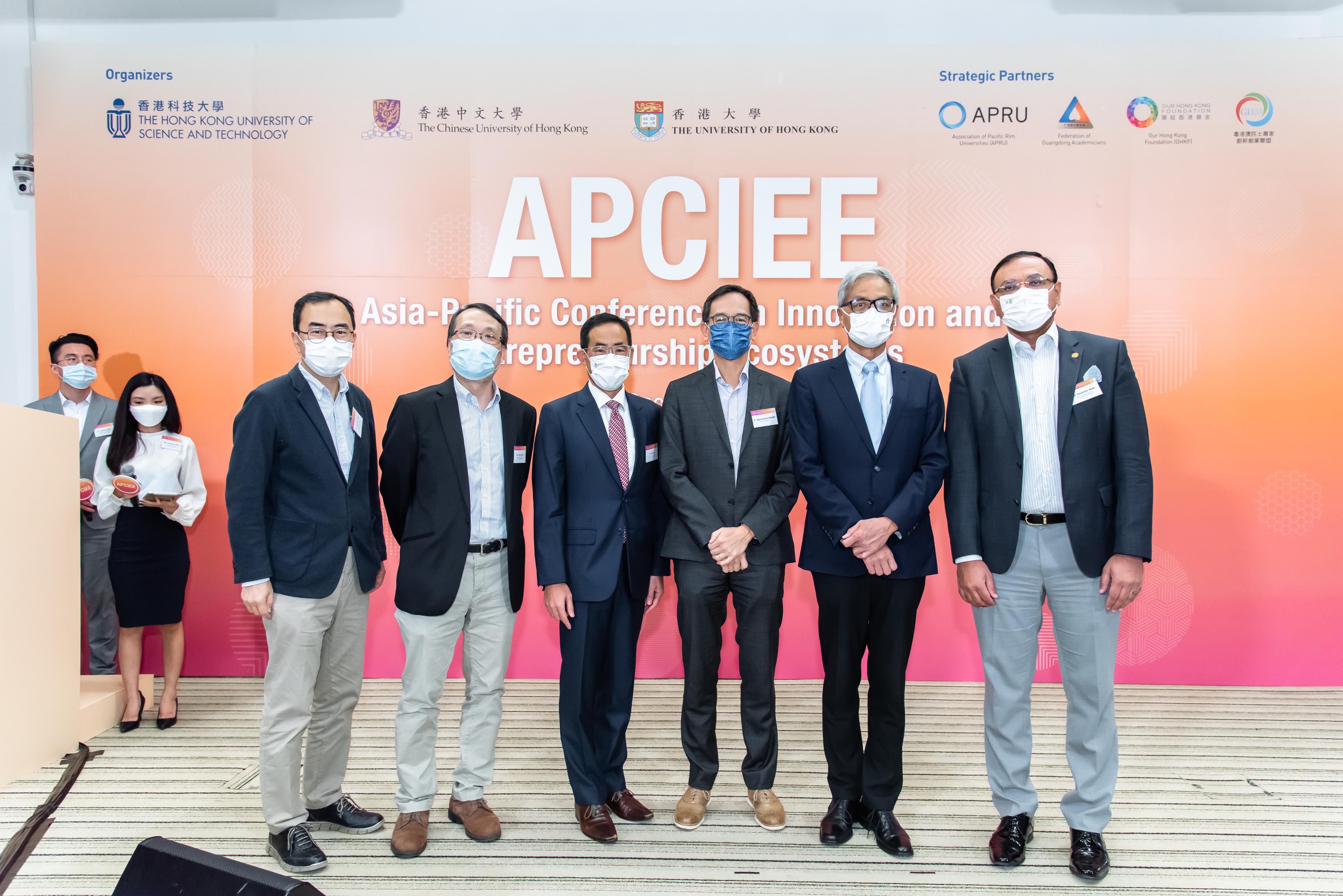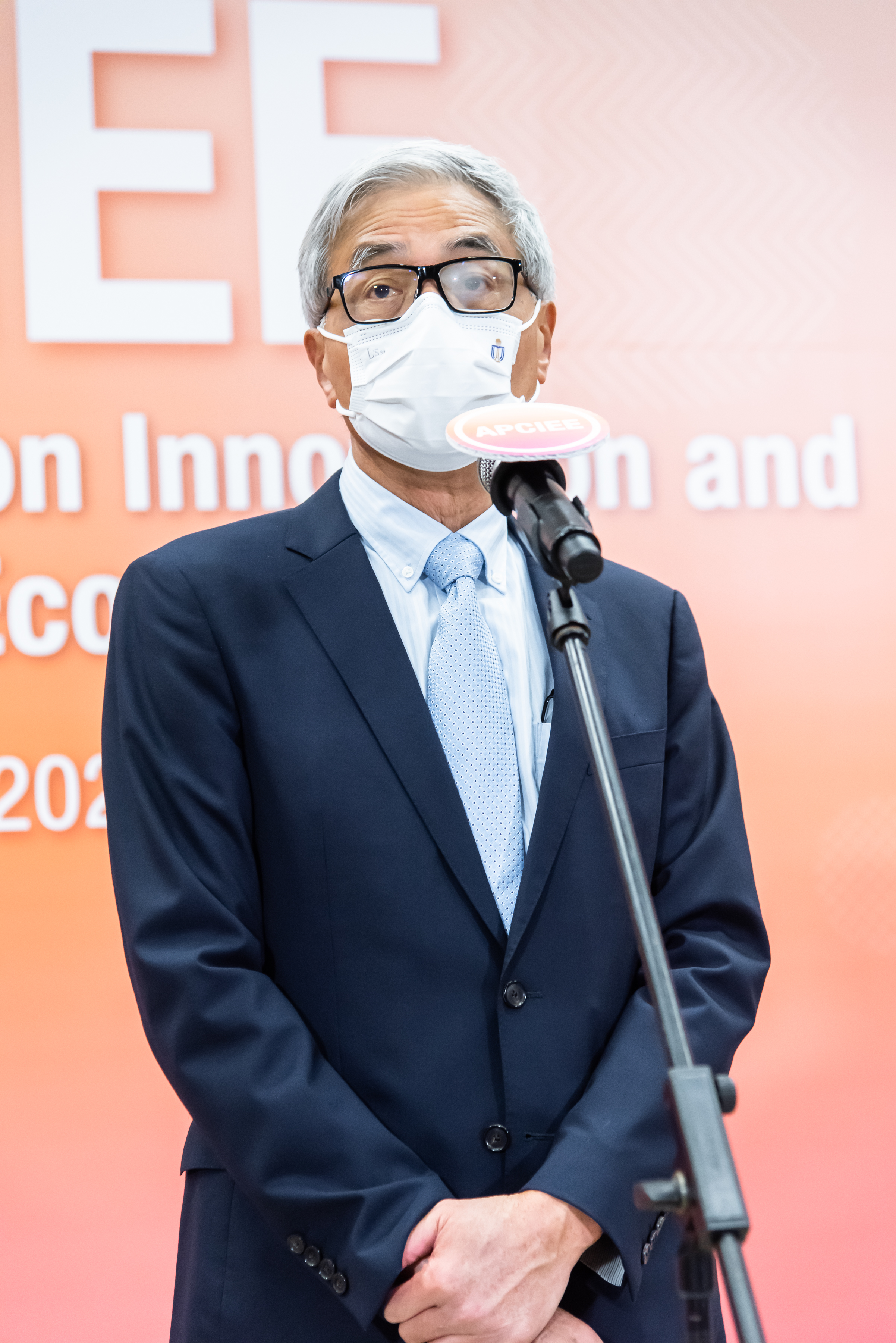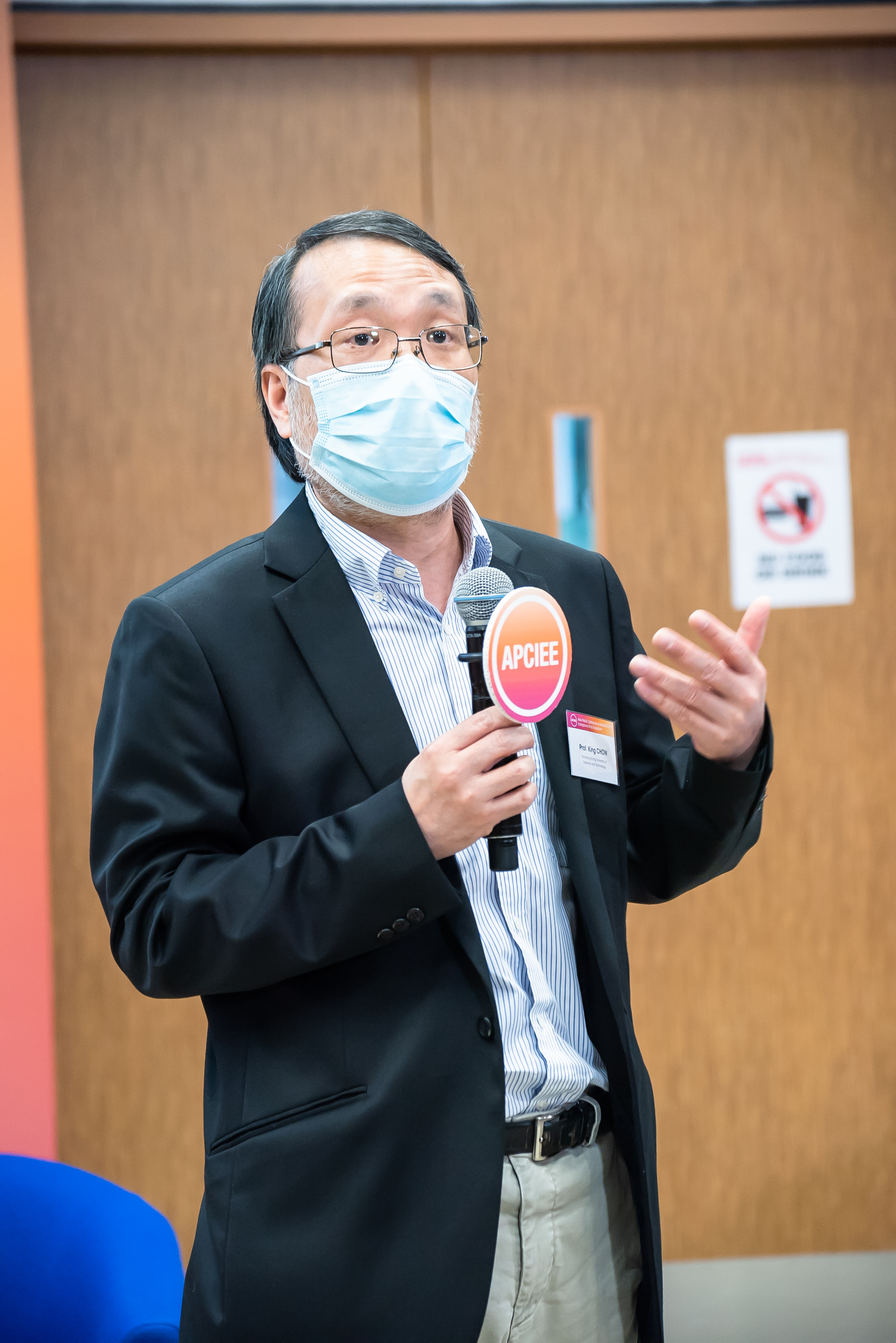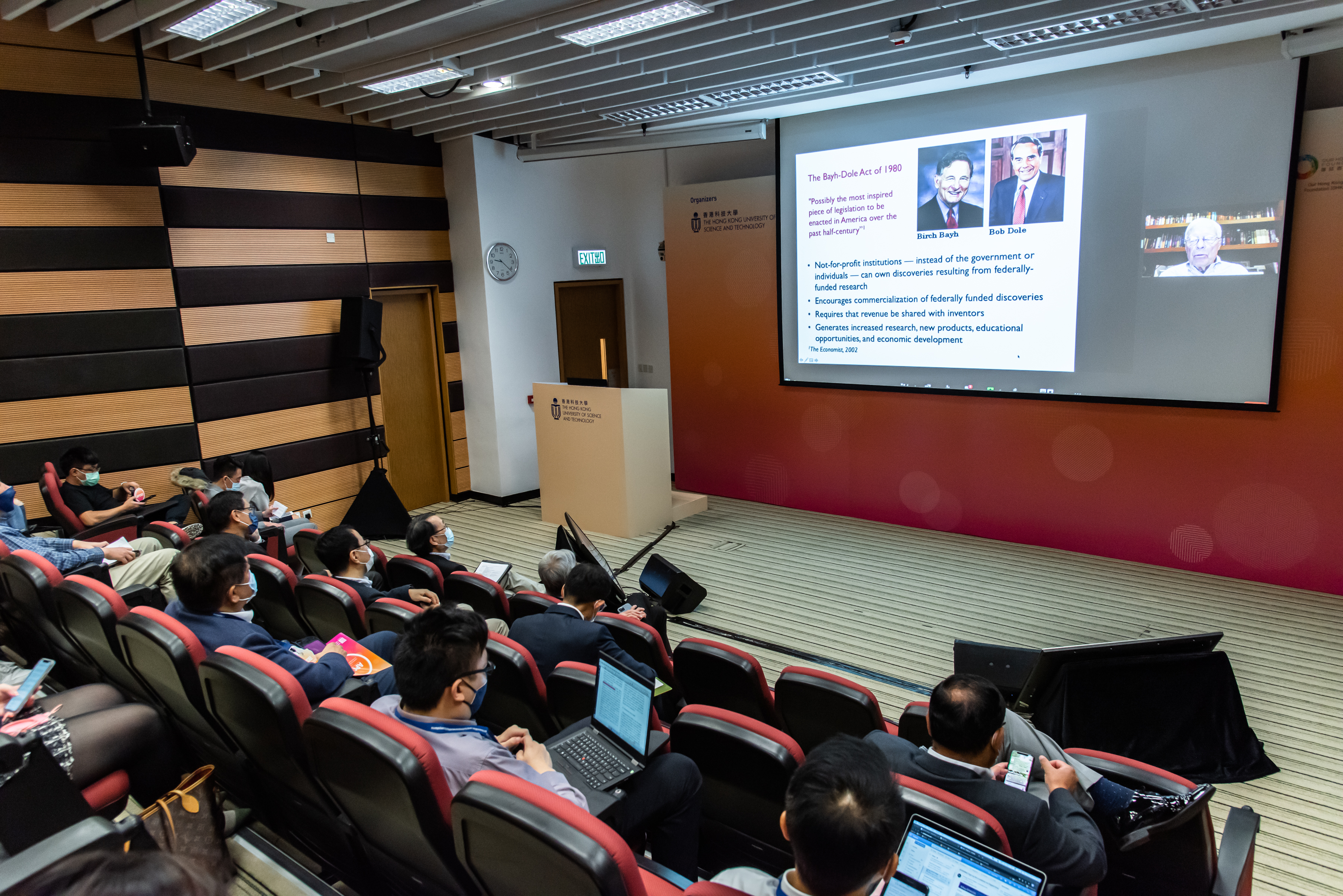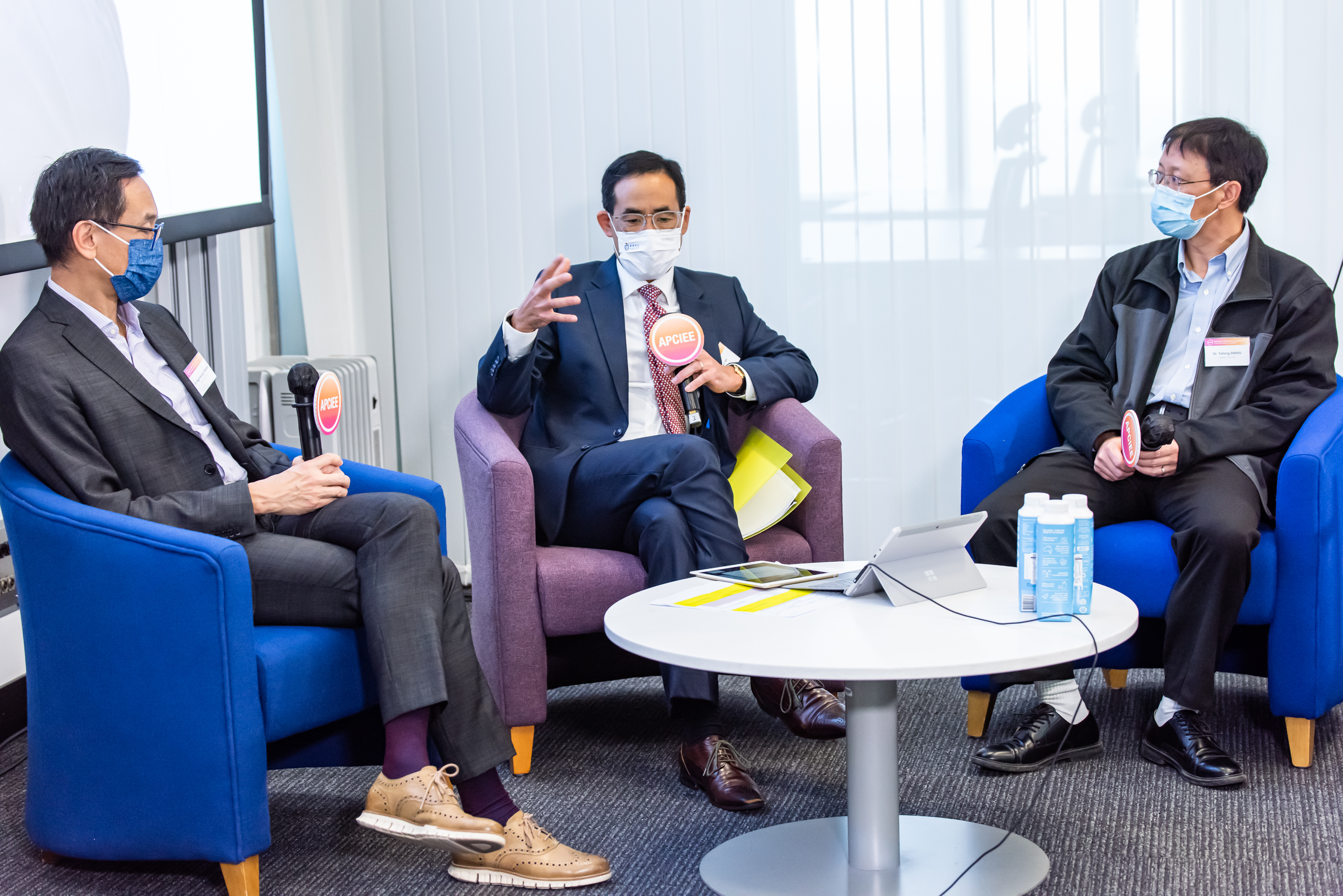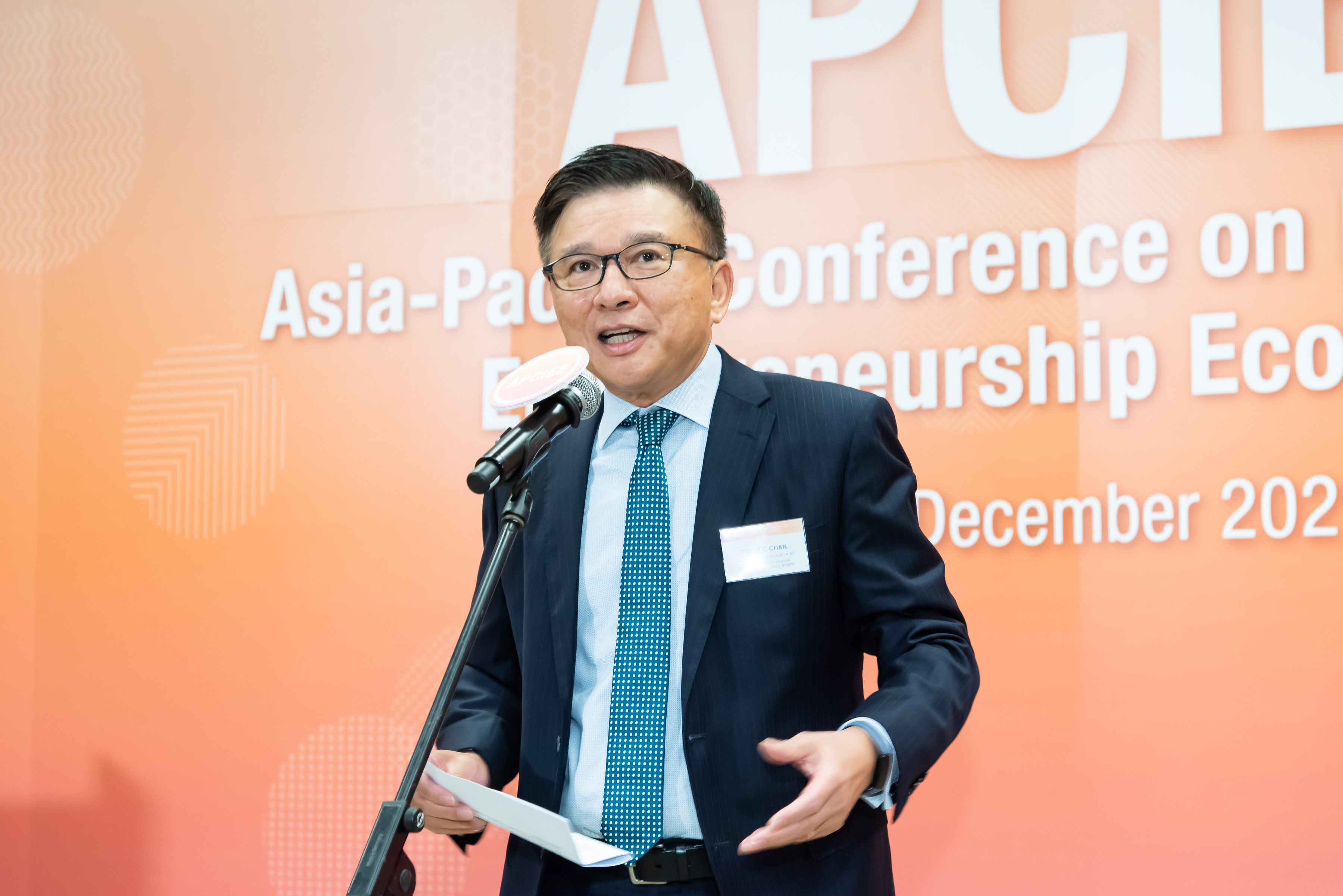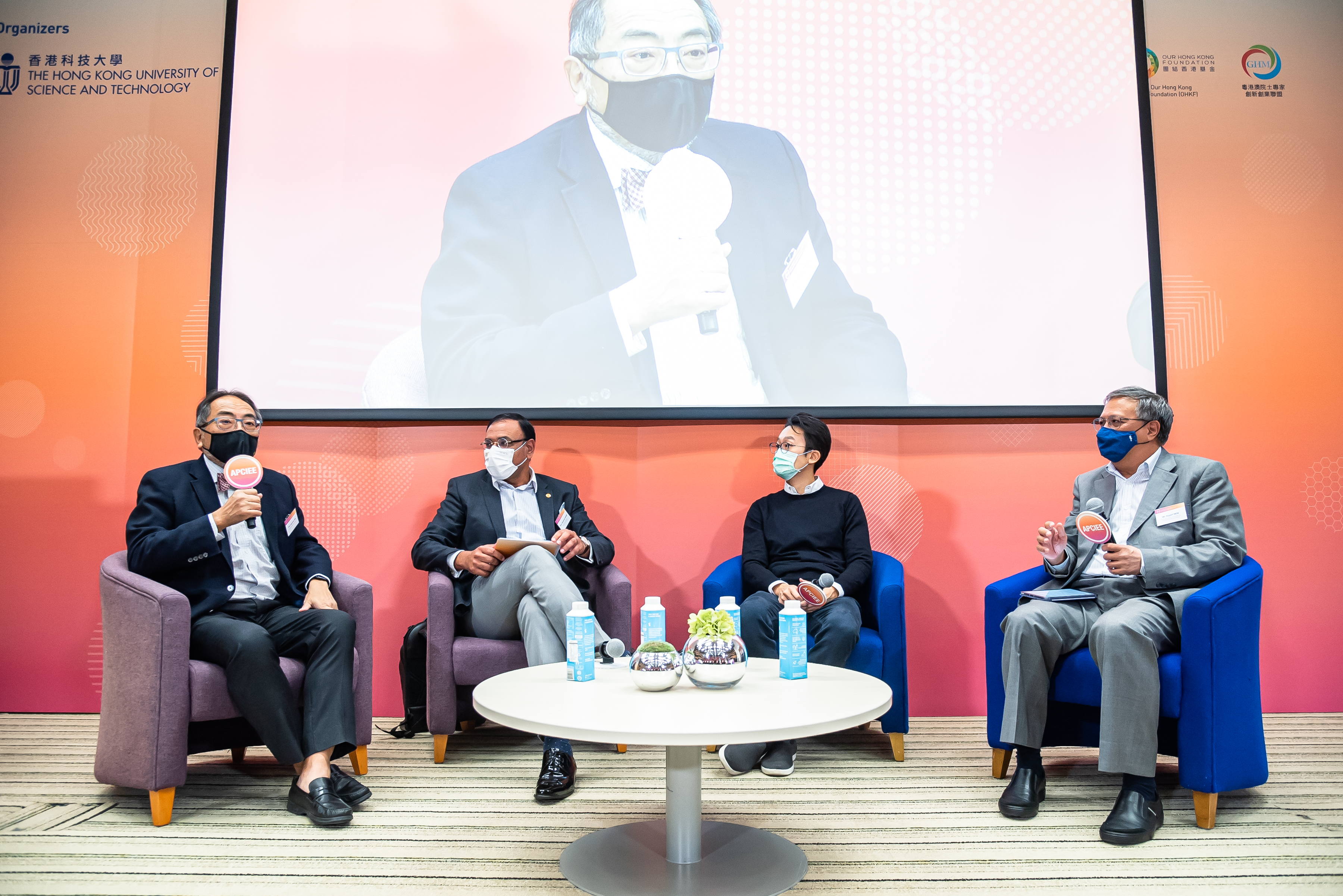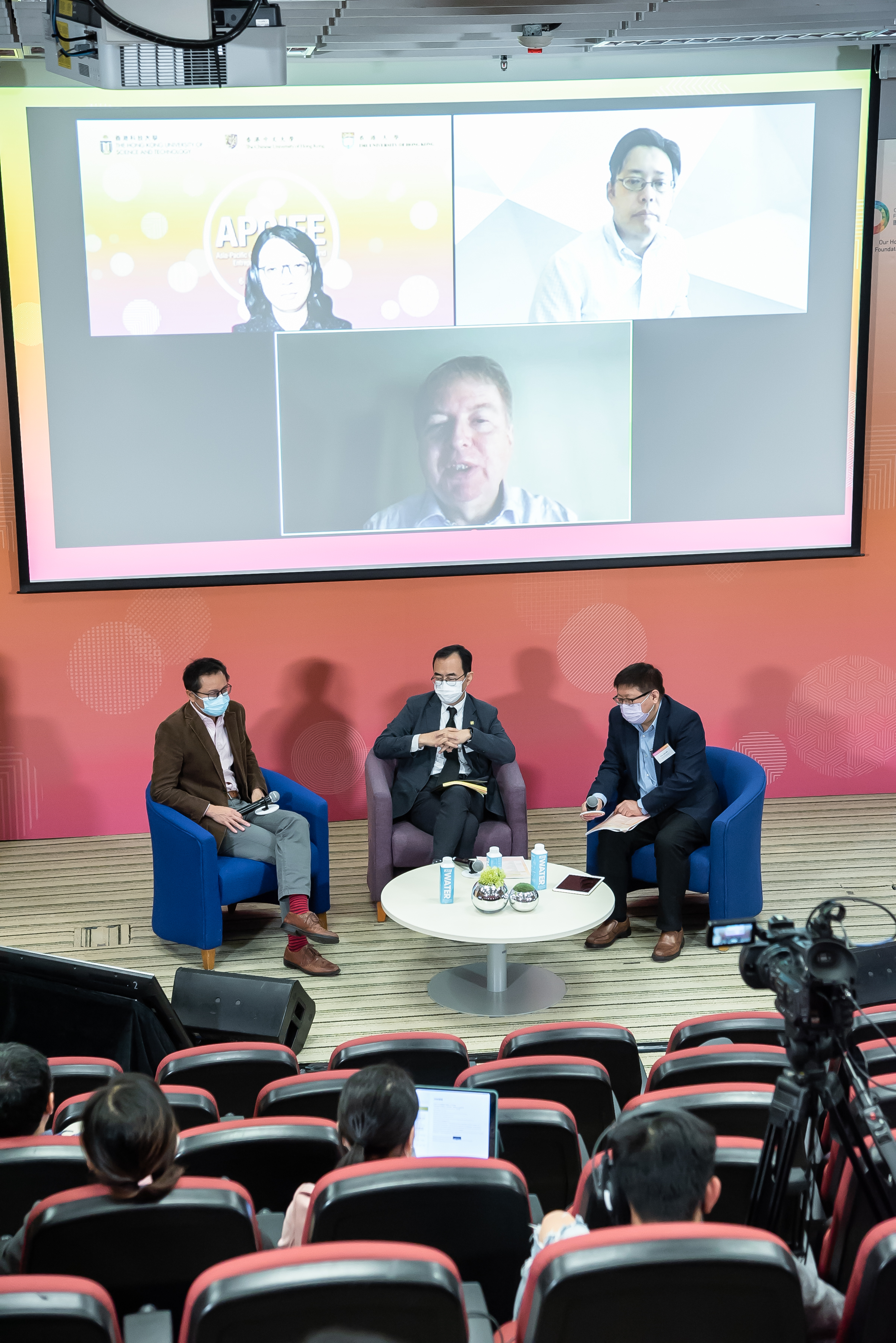#leadingwithoutboundaries
The Association of Pacific Rim Universities (APRU) and the Division of Public Policy (PPOL) at the Hong Kong University of Science and Technology (HKUST) hosted the Asia-Pacific Conference on Innovation and Entrepreneurship Ecosystems (APCIEE) on 6-7 December 2021. The conference invited 31 experts from all over the world to share their experiences in the creation of successful innovation hubs with over 180 attendees (in-person and online), which helps cultivate an innovation network of Hong Kong with aligned interests.
Innovation and entrepreneurship have been supported by the HKSAR government and many other sectors. We also recognize that with the current economic structure, we need not only innovators and entrepreneurs but also other partners in the industry and investors.” said Professor Wei SHYY, President of HKUST, in the welcome speech.
The conference consists of three thematic sessions, 1) Artificial Intelligence Entrepreneurship in Health Care Industry, 2) Synthetic Biology and Bio-Economy, and 3) A Role of Research Universities in Innovation-led Economic Growth.
In the first session, scientists from the government and enterprises shared their views about the current and future trends of Artificial Intelligence (AI) development in the health care industry. They all agreed that the deepening of AI applications on medical services is inevitable. AI can improve diagnosis accuracy, reduce human errors, and lower operational costs. Machine learning in the big data age can also unlock the mysteries of life and create better drugs. However, experts in the session warned that AI must be supplemented by medical knowledge and human interpretation to prevent biases in diagnosis.
In the second session, notable synthetic biologists from different cities shared their successful experiences in establishing innovation centers. Synthetic biology is an interdisciplinary subject involving biology, chemistry, engineering, and computer science, etc., and will have a strong economic impact in the coming decades. Nonetheless, it is difficult to create a favorable ecosystem. Innovations at the early stage are fragile with a longer life cycle. Also, a circular model between basic research and application under clear directives would be essential. Since the market scale is crucial for this industry, Hong Kong should collaborate with cities in the Greater Bay Area.
In the third session, leading scholars discussed the major role played by research universities in creating an innovation ecosystem. Universities are essential for training high quality and multi-disciplinary manpower, which is the cornerstone of innovation. Universities are also responsible for bridging seed funding as well as experienced entrepreneurs with faculty and students. Furthermore, institutes need to address the issue of the absorptive capacity of new but valuable research outcomes.
“The relevance of this topic has become abundantly clear, it is also an extremely timely topic. I hope the discussion continues,” said Professor Naubahar SHARIF, Acting Head of PPOL, during the session of summary notes. Professor King L. CHOW, the conference convenor, commented, “I am sure that all parties, e.g., universities, industries, investors, and the government, share the same goal. Yet, each may be looking for different immediate and long term outcomes. It is a good opportunity today to have different parties coming together, recognizing where the gaps are, identifying the common goal and the concrete steps to take us there.”
For more details of the conference, please visit: https://apciee.hkust.edu.hk/.

